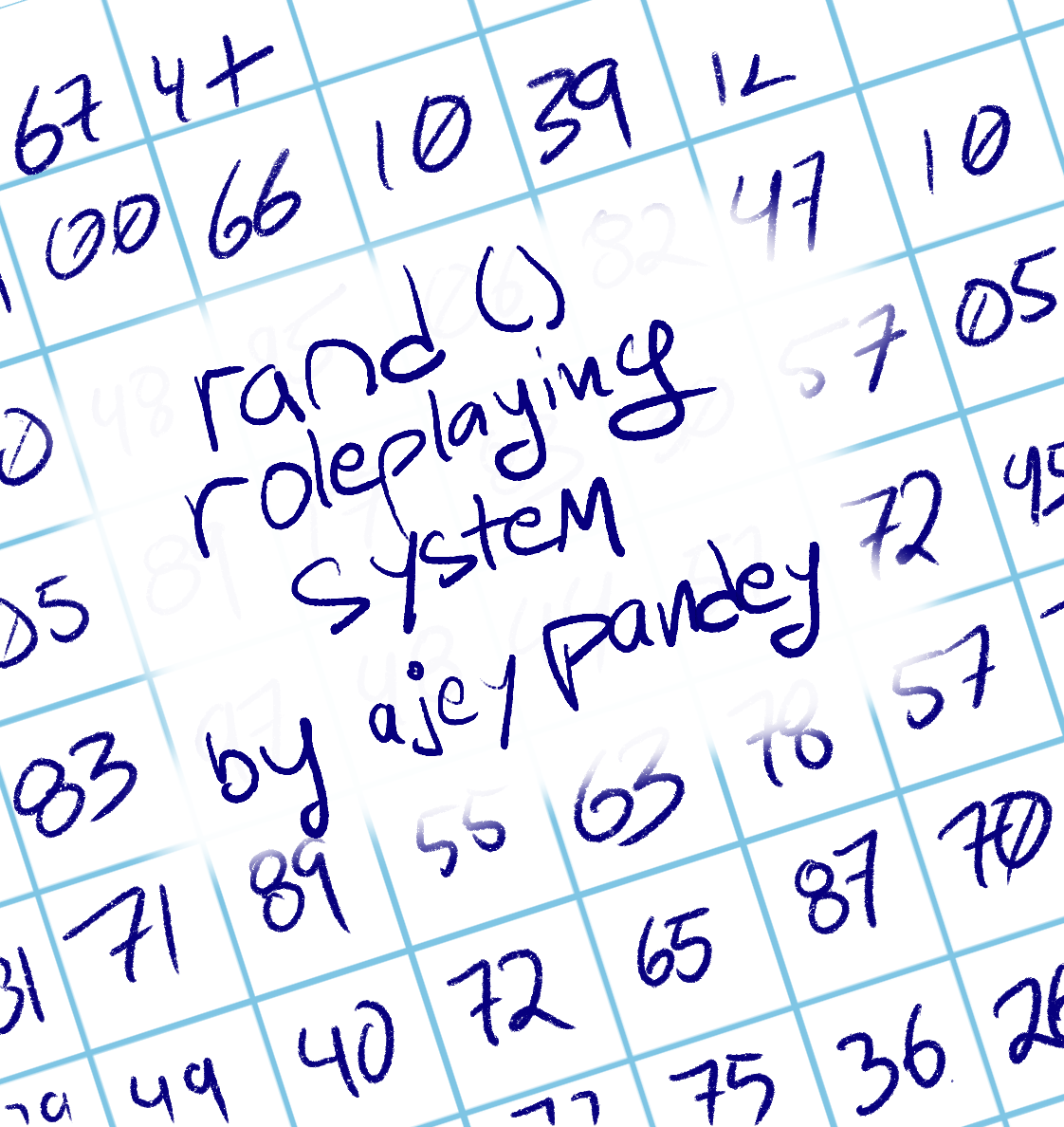
The rand() roleplaying system, or rand() for short (the parentheses are silent), is a traditional tabletop roleplaying game, with the exception that it replaces dice with a computerized random number generator (RNG). Think of it like a response to the perennial discourse around whether crunchy TTRPGs are good or not.
This sketched-together toolbox game engine is an experiment in TTRPG design. There is a long practice of using “dice bots” for facilitating randomization in RPG sessions, yet dice bots still try to emulate physical dice, and TTRPGs tend to avoid making players do complex mathematics, even though most people have access to machines with a staggering capacity for doing math.
On a more meme-logic level, I aim to use rand() as a means to outdo games that have been mockingly described as games about doing math. My goal is that rand() becomes the first traditional-format tabletop roleplaying game to require the use of a scientific calculator for basic operation.
The core resolution of rand() is the setting of a probability of success, which becomes the target threshold that a player must generate a rand() below in order to succeed. Typically, the probability is underpinned by a number between 0 and 1, and then multiplied by modifiers including Skills and other context-specific effects. That probability then becomes a threshold of success: if the rand() function returns a number below that threshold, the action succeeds. (A d100 divided by 100 can provide a similar function.)
Combat operates in Rounds, during which characters pick and execute actions at the unit of Ticks. Each Tick represents about 1 second of in-game time, and each Round has 5 Ticks. Each Round involves a Setup Phase, in which all characters allocate actions within their five Tick slots, and an Action Phase, in which all characters' actions are resolved Tick-by-Tick, with no recourse for characters to course-correct mid-Round, leading to a combat system that prioritizes messy and chaotic action.
WARNING: The text you are reading has gone from initial concept to as-written in the span of two days. The core resolution and combat systems have not been tested, the Ability list only has a smattering of the Abilities needed for a full game, the weapons list is both sparse and probably unplayable, and there literally is no established system for health, movement, cover, or leveling. The rand() role-playing system is playable only on a theoretical basis, and its core concept is flatly absurd. Read this document as a proof of concept, not as a game to introduce to your table.

No comments:
Post a Comment